 W
WMikhail Illarionovich Artamonov was a Soviet historian and archaeologist, who came to be recognized as the founding father of modern Khazar studies.
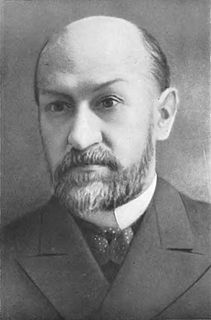 W
WVasily Vladimirovich Bartold was a Russian Empire and Soviet historian of German descent who specialized in the history of Islam and the Turkic peoples (Turkology).
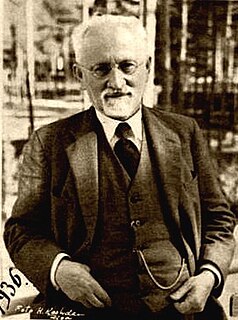 W
WSimon Dubnow was a Jewish-born Russian historian, writer and activist.
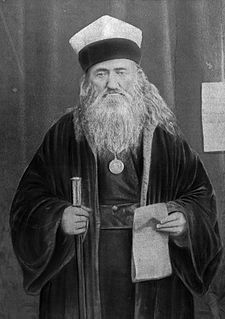 W
WAbraham (Avraham) ben Samuel Firkovich (1786–1874) was a famous Karaite writer and archaeologist, collector of ancient manuscripts, and a Karaite Hakham. He was born in Lutsk, Volhynia, then lived in Lithuania, and finally settled in Çufut Qale, Crimea. Gabriel Firkovich of Troki was his son-in-law.
 W
WPeter Benjamin Golden is Professor Emeritus of History, Turkish and Middle Eastern Studies at Rutgers University. He is the author of a wide array of books, articles and other written works on Turkic and Central Asian Studies. A native of New York City, he grew up in Washington Heights and graduated from Music & Art High School.
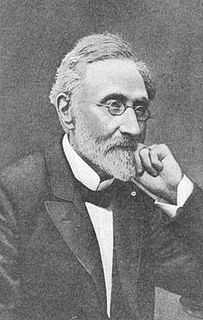 W
WHeinrich Graetz was amongst the first historians to write a comprehensive history of the Jewish people from a Jewish perspective.
 W
WLev Nikolayevich Gumilyov was a Soviet historian, ethnologist, anthropologist and translator from Persian. He had a reputation for his highly non-orthodox theories of ethnogenesis and historiosophy. He was an exponent of eurasianism.
 W
WJudah Halevi was a Spanish Jewish physician, poet and philosopher. He was born in Spain, either in Toledo or Tudela, in 1075 or 1086, and died shortly after arriving in the Holy Land in 1141, at that point the Crusader Kingdom of Jerusalem.
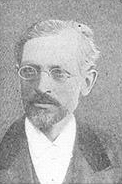 W
WAvraam/Albert Yakovlevich Harkavy, or Avraham Eliyahu ben Yaakov Harkavy was a Russian historian and orientalist.
 W
WThe Invention of the Jewish People is a study of the historiography of the Jewish people by Shlomo Sand, Professor of History at Tel Aviv University. It has generated a heated controversy. The book was in the best-seller list in Israel for nineteen weeks.
 W
WArthur Koestler, was a Hungarian British author and journalist. Koestler was born in Budapest and, apart from his early school years, was educated in Austria. In 1931, Koestler joined the Communist Party of Germany, but he resigned in 1938 because Stalinism disillusioned him.
 W
WAl-Mas'udi was an Arab historian, geographer and traveler. He is sometimes referred to as the "Herodotus of the Arabs". A polymath and prolific author of over twenty works on theology, history, geography, natural science and philosophy, his celebrated magnum opus Murūj al-Dhahab wa-Ma'ādin al-Jawhar, combines universal history with scientific geography, social commentary and biography, and is published in English in a multi-volume series as The Meadows of Gold and Mines of Gems.
 W
WSvetlana Alexandrovna Pletneva was a Russian and Soviet archaeologist and historian. Like Lev Gumilev, she was a student of Mikhail Artamonov, although she discarded many of the former's theories as mere speculations. She won the USSR State Prize in 1986
 W
WOmeljan Yósypovych Pritsak was the first Mykhailo Hrushevsky Professor of Ukrainian History at Harvard University and the founder and first director (1973–1989) of the Harvard Ukrainian Research Institute.
 W
WAndrás Róna-Tas is a Hungarian historian and linguist. He was born in 1931 in Budapest. Róna-Tas studied under such preeminent professors as Gyula Ortutay and Lajos Ligeti, and received a degree in folklore and eastern linguistics
 W
WLazăr Șăineanu was a Romanian-born philologist, linguist, folklorist and cultural historian. A specialist in Oriental and Romance studies, as well as a Germanist, he was primarily known for his contribution to Yiddish and Romanian philology, his work in evolutionary linguistics, and his activity as a literary and philological comparatist. Șăineanu also had innovative contributions to the investigation and anthologizing of Romanian folklore, placed in relation to Balkan and East Central European traditions, as well as to the historical evolution of Romanian in a larger Balkan context, and was a celebrated early contributor to Romanian lexicography. His main initiatives in these fields are a large corpus of collected fairy tales and the 1896 Dicționarul universal al limbii române, which have endured among the most popular Romanian scientific works.
 W
WThe Thirteenth Tribe is a 1976 book by Arthur Koestler, in which the author advances the thesis that Ashkenazi Jews are not descended from the historical Israelites of antiquity, but from Khazars, a Turkic people. Koestler hypothesized that the Khazars migrated westwards into Eastern Europe in the 12th and 13th centuries when the Khazar Empire was collapsing.
 W
WZeki Velidi Togan, was a Bashkir historian, Turkologist, and leader of the Bashkir revolutionary and liberation movement.